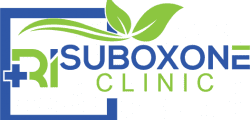The opioid crisis has become a major public health issue in recent years, with millions of individuals in the United States suffering from opioid use disorder. The overuse and misuse of opioids can lead to physical dependence, tolerance, and withdrawal symptoms when trying to stop using the drug.
This blog post discusses the nature of opioid dependence and how to manage your opioid use disorder to break the cycle of addiction.
What is Opioid Addiction and Dependence

Opioid addiction and dependence, also known as opioid use disorder, is a serious and growing issue in many parts of the world. Opioids are a class of drugs that include prescription pain relievers like oxycodone, hydrocodone, and morphine, as well as illegal drugs like heroin. These drugs are highly addictive and can lead to dependence and withdrawal symptoms when used regularly.
This substance use disorder occurs when a person becomes physically and psychologically dependent on opioid drugs. It can happen in various ways, including through recreational use, misuse of opioid medications, or as a result of chronic pain management.
Dependence on opioids occurs when a person’s body becomes accustomed to the presence of the drug and requires it to function normally. When a person stops taking opioids, they may experience withdrawal symptoms such as nausea, vomiting, diarrhea, muscle aches, and intense cravings. These symptoms can be extremely uncomfortable and make it difficult for a person to stop using opioids without professional help.
Opioid addiction and dependence can have severe repercussions on a person’s physical and mental health, as well as their personal and professional lives. It can lead to financial hardship, strained relationships, legal troubles, and increase the risk of overdose and death. That’s why it’s crucial for anyone struggling with opioid addiction or dependence to seek help as soon as possible.
It’s crucial to recognize that opioid dependence is a chronic medical condition, not a moral failing or a lack of willpower. Individuals struggling with opioid dependence often do so in the face of profound physical and psychological distress. The brain’s reward system becomes dysregulated, leading to cravings and compulsive drug-seeking behavior. It can make it incredibly difficult for people to stop using opioids on their own.
Fortunately, opioid dependence can be effectively treated with a combination of medication, therapy, and support. Medications such as methadone, buprenorphine, and naltrexone can help reduce cravings and withdrawal symptoms, making it easier for individuals to engage in therapy and make meaningful changes in their lives.
Suboxone Treatment: An Effective Solution

Suboxone treatment has emerged as an effective solution for individuals struggling with opioid addiction. This medication contains a combination of buprenorphine and naloxone.
Buprenorphine, an opioid partial agonist, binds to the same receptors in the brain as opioids but with a lower intensity. It can help alleviate withdrawal symptoms and drug cravings without producing the same euphoric effects as opioids, leading to a reduced risk of misuse and overdose. Naloxone, on the other hand, is an opioid antagonist and is included in Suboxone to deter misuse, as it can precipitate withdrawal symptoms if the medication is tampered with and injected.
Suboxone treatment is often part of a comprehensive approach to addiction recovery, including counseling and behavioral therapies, to address the underlying issues contributing to opioid use. This holistic approach can help individuals develop the skills and coping strategies needed to maintain sobriety and lead a fulfilling life free from opioid dependence.
Furthermore, Suboxone treatment is accessible through certified physicians who are specially trained and licensed to prescribe this medication. It means that individuals seeking Suboxone treatment can receive personalized care and support from healthcare professionals who understand the complexities of addiction and can tailor treatment to meet each person’s unique needs.
The Role of Medication-Assisted Treatment (MAT) for Opioid Use Disorder

Medication-assisted treatment (MAT) plays a crucial role in the treatment of opioid dependence. MAT is an evidence-based approach that combines the use of medications, such as Suboxone, with counseling and behavioral therapies to provide a comprehensive approach to treating addiction to opioids.
MAT also includes counseling and behavioral therapies to address the psychological and social aspects of opioid dependence. Counseling and therapy help individuals develop the skills and support they need to maintain their sobriety and avoid relapse.
Counseling and therapy can help individuals identify triggers for drug use, learn healthy coping mechanisms, improve communication skills, and address any underlying mental health issues that may contribute to substance abuse.
Cognitive-behavioral therapy (CBT), for example, can help individuals recognize and change negative thought patterns and behaviors that contribute to their drug use. Family therapy can also be beneficial, as it helps improve communication and support within the individual’s family unit.
By addressing the root causes of addiction and providing ongoing support, counseling, and therapy can help individuals break the cycle of opioid dependence and build a strong foundation for long-term recovery.
MAT is a critical component of treatment for opioid use disorder and has been shown to improve outcomes for individuals in recovery. By addressing both the physical and psychological aspects of opioid dependence, MAT provides a comprehensive approach to treatment that can help individuals achieve lasting recovery and improve their overall quality of life.
Combating Opioid Cravings with Suboxone Treatment

Suboxone treatment helps reduce cravings and symptoms of withdrawal. When taken as prescribed by a healthcare professional, Suboxone can help individuals struggling with opioid addiction manage their cravings and focus on their recovery. It can also reduce the chance of relapse and risk of overdose, as it blocks the effects of other opioids, making it less likely for individuals to experience the euphoric high associated with these drugs.
In addition to its effectiveness in combating cravings and withdrawal symptoms, Suboxone is also relatively safe when used as directed. Unlike other medications used to treat opioid addiction, such as methadone, Suboxone has a lower risk of misuse and overdose due to the presence of naloxone.
While Suboxone can be beneficial in the treatment of opioid addiction, it is not a standalone solution. It should be part of a comprehensive treatment program that includes counseling, support groups, and other forms of therapy. Additionally, opioid-dependent patients using Suboxone should be closely monitored by a healthcare professional to ensure the medication is working effectively and to make any necessary adjustments to the treatment plan.
Success Rates of Suboxone Treatment

Suboxone has been gaining popularity recently due to its high success rates. Research has shown that people with opioid use disorder who undergo Suboxone treatment have a significantly higher success rate in overcoming opioid addiction compared to other treatment options.
A study published in the Journal of Addiction Medicine found that patients receiving Suboxone treatment were more likely to remain in treatment and achieve abstinence from opioids. The study also showed that Suboxone was effective in reducing opioid use and improving overall quality of life for patients.
One of the reasons for the high success rates of Suboxone treatment is its unique mechanism of action. Suboxone contains a combination of buprenorphine and naloxone, which work together to reduce cravings for opioids and block the effects of other opioids. It helps patients to manage their withdrawal symptoms and avoid relapse, leading to long-term success in recovery.
In addition to its efficacy, Suboxone treatment is more convenient for patients than other treatment options. It can be prescribed by a qualified medical professional and taken at home, eliminating the need for frequent clinic visits. It makes it more accessible and manageable for patients, increasing their likelihood of sticking to the treatment plan and achieving success.
It is important to note that Suboxone treatment is most effective when combined with counseling and support services. These additional components help address the underlying issues contributing to the addiction and provide patients with the tools and resources they need to maintain their recovery.
Overall, the success rates of Suboxone treatment for opioid addiction are promising, offering hope for those struggling with opioid dependency. With its proven efficacy and convenience, Suboxone has become a valuable tool in the fight against opioid addiction, providing a pathway to long-term recovery and improved quality of life for patients.
Break the Cycle of Addiction

The road to recovery may be challenging. However, with the proper Suboxone treatment and a solid support system in place, individuals can break the cycle of addiction and reclaim their lives. Suboxone treatment offers a safe and effective way to manage cravings, reduce withdrawal symptoms, and prevent relapse, leading to long-term success in overcoming opioid dependence.
If you are struggling with opioid use disorder, RI Suboxone Clinic offers comprehensive Suboxone treatment programs to help you break free from the grip of addiction. Our experienced healthcare professionals will work with you to create a personalized treatment plan that meets your unique needs and supports your journey toward recovery.
Don’t let opioid addiction control your life any longer. Take the first step toward breaking the cycle of addiction by reaching out for help today. Contact RI Suboxone Clinic to learn more about our Suboxone treatment programs and start your journey towards a healthier, drug-free life.




